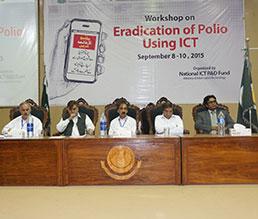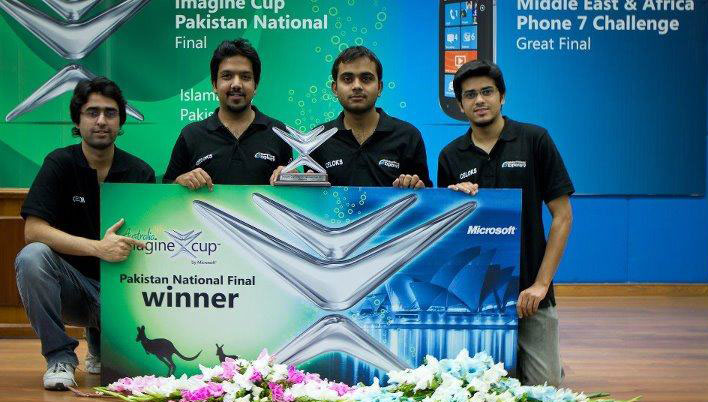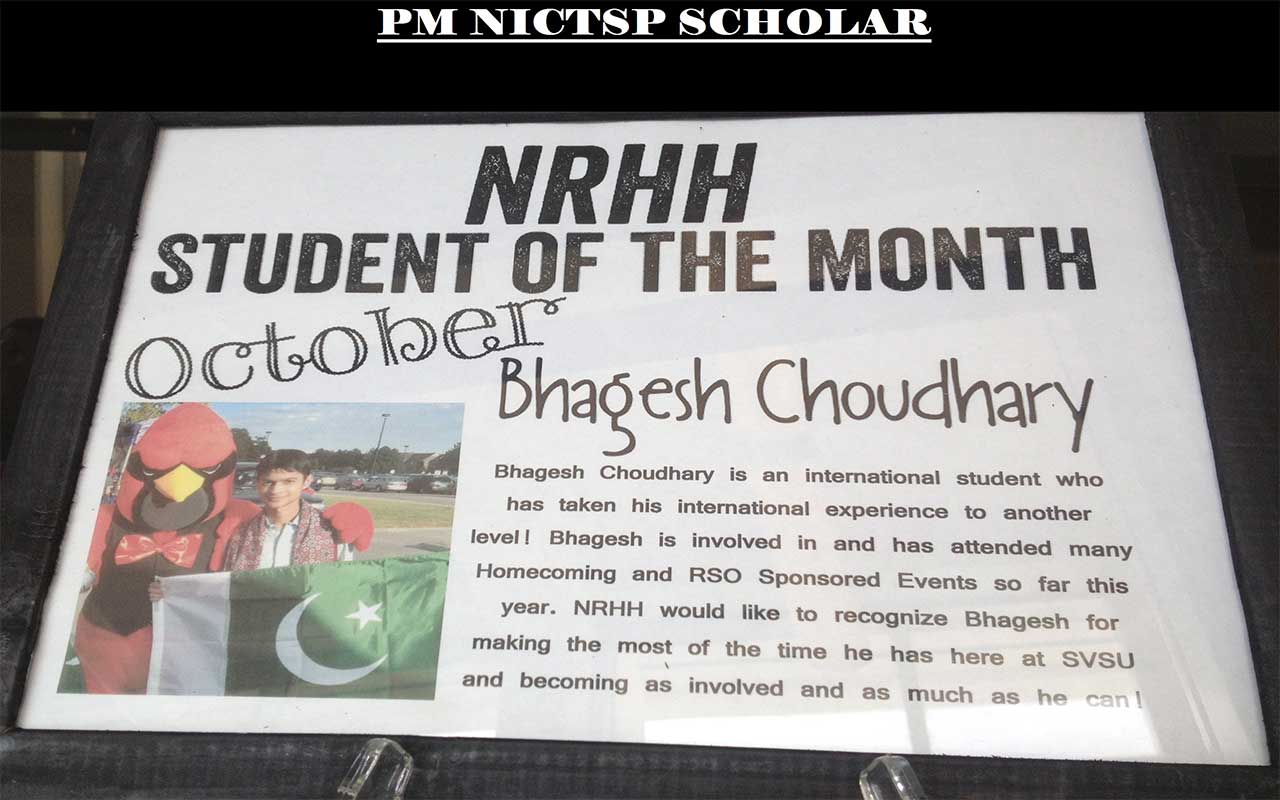Pakistan is one of only three countries in the world including Afghanistan and Nigeria in which polio remains an endemic. Taking into account the challenges being faced in the Polio eradication drives across the country, this workshop on “Eradication of Polio Using ICT” was organized by Ignite (Formerly National ICT R&D Fund) in collaboration with the Department of Computer Science, University of Malakand. It was a 3-day workshop held between 8 – 10 September 2015 at the University of Malakand.
The workshop aimed to provide opportunity to local Medical Experts, Researchers, Practitioners, ICT experts, Polio workers, Health Agencies and relevant stakeholders to discuss various health related technologies that can be applied to polio eradication activities in the country, and provide an insight to the issues being faced.
Dr. Johar Ali, Vice Chancellor, University of Malakand formally opened the workshop. He shared the contributions of the University for the development of the region as whole. He appreciated the organizing committee for organizing the event and thanked the speakers, the attendees and Ignite (Formerly National ICT R&D Fund) for making the event possible.
The session was initiated by a presentation from Dr. Sabihuddin, Deputy District Health Officer, Malakand who shared the current status of Polio Vaccination in the District of Malakand. He also shared the historical evolution of the disease across the world and how through concerted efforts it was effectively controlled.
Later Dr. M. Junaid, Assistant Professor, University of Malakand shared the anatomy of the polio vaccine, its evolution and the ways and means to make the vaccine more effective.
Mr. Amir Sami, GM SEED, Ignite (Formerly National ICT R&D Fund) in his talk introduced the working of Ignite (Formerly National ICT R&D Fund) to the faculty and other attendees at the workshop. He shared his excitement of the funding opportunities that the Fund entails for researchers. He also shared some of the success stories with the audience thereby encouraging them to benefit from the available funding opportunities.
Ms. Naseem Khan Mahsud, Lecturer, Department of Sociology, Allama Iqbal Open University (AIOU) highlighted the hurdles being faced by the Polio teams in the vaccination campaigns across the country and the steps being taken to overcome these challenges.
Dr. Shahid Ahmad from the World Health Organization (WHO) briefed the audience on the various initiatives of WHO and other donor agencies is surmounting the challenges in the eradication of polio from Pakistan. He also shared that with Nigeria having no reported polio cases throughout this year, it is highly likely that Pakistan and Afghanistan would be the only two countries left in the World where polio still remains an endemic.
Dr. Ajab Khan from the University of Malakand shared the concept of a ICT enabled application titled Zero Click e-Medicine which will facilitate the polio drive across the country. ICT interventions will help structure the polio eradication initiatives and make them more effective.
The focus of the event was to share the challenges being faced by the country in countering this crippling disease which has no cure. It further deliberated upon the various possible ICT interventions that can help facilitate the Polio eradication drive across the country.




